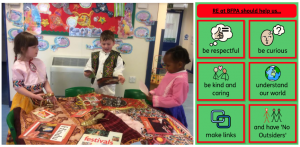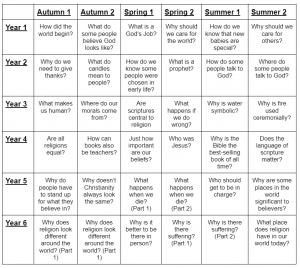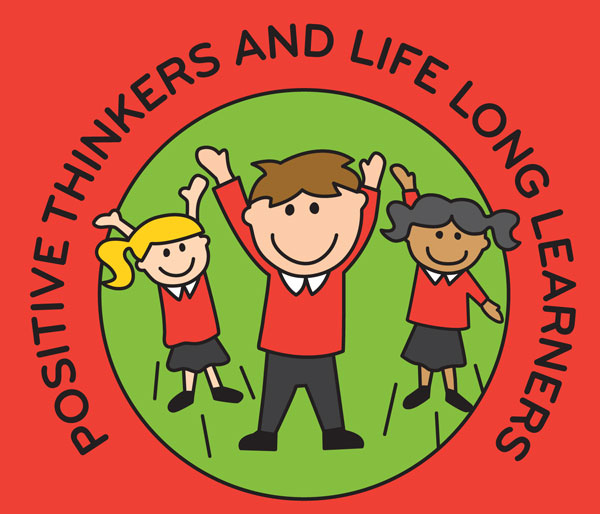How we learn about Religion and Worldviews at BFPA
Key skill: to understand and have respect for different religions.

Our aim is that children who leave our school in Year 6 will be able:
- To have a knowledge, understanding and respect for a range of world religions and individual beliefs (to understand our world).
- To have a positive attitude towards discussing all religions and world views; to offer ideas and give clear responses (to be curious and respectful).
- To consider, compare and contrast different religious beliefs (to make links).
- To explore and share their own beliefs, values and traditions (to be curious and make links).
- To be prepared for active citizenship in a diverse and rapidly changing world (to have ‘No Outsiders’ by being kind and caring).
Our Religion and Worldview curriculum allows our children to:
- Adopt an enquiry-based approach, beginning with the children’s own life experience before moving into learning about and from religion within a spiral curriculum that allows breadth and depth of concepts (conceptual knowledge).
- Ask and discuss challenging questions. Curiosity is sparked by each unit being driven by a ‘big question’, which develops pupils’ knowledge and understanding of Christianity, other principal religions, and worldviews. Examining big questions fosters personal reflection and spiritual development.
- Encourage pupils to develop their personal worldviews and positionality (personal knowledge), in light of what they learn, as they examine issues of religious belief and faith and how these impact on personal, institutional and social ethics; and to express their responses.
- Enable pupils to build their sense of identity and belonging, which helps them flourish within their communities and as citizens in a diverse society.
- Teach pupils to develop respect for others, including people with different faiths and beliefs, and help to challenge prejudice.
- Prompt pupils to consider their responsibilities to themselves and to others, and to explore how they might contribute to their communities and to wider society. It encourages empathy, generosity and compassion, which aligns with our No Outsider’s policy.
- Develop a sense of awe, wonder/ curiosity and mystery.
- Understand some of the ways religions are studied (disciplinary knowledge).
Every year, our children will follow a spiral curriculum that aims to answer the ‘big’ questions. Within each unit, children will make links between a variety of religions and worldviews.
The ‘big’ questions studied are:
- Why are we here?
- Why do worldviews change?
- What is religion?
- How can worldviews be expressed?
- How do worldviews affect our daily lives?
- How can we live together in harmony if we have different worldviews?
Our long term plan is as follows:


